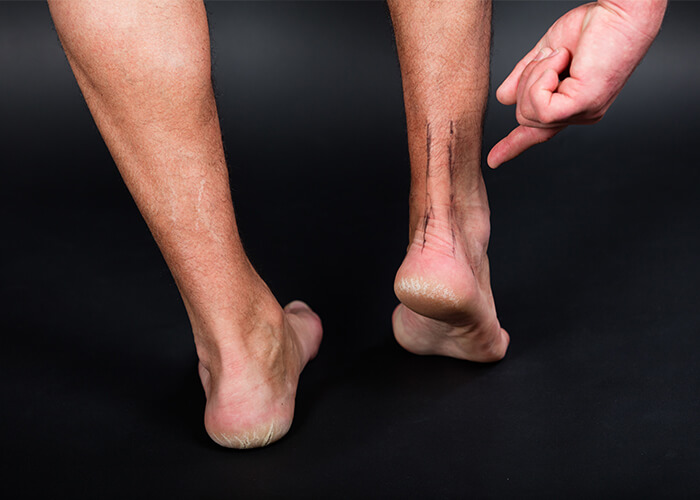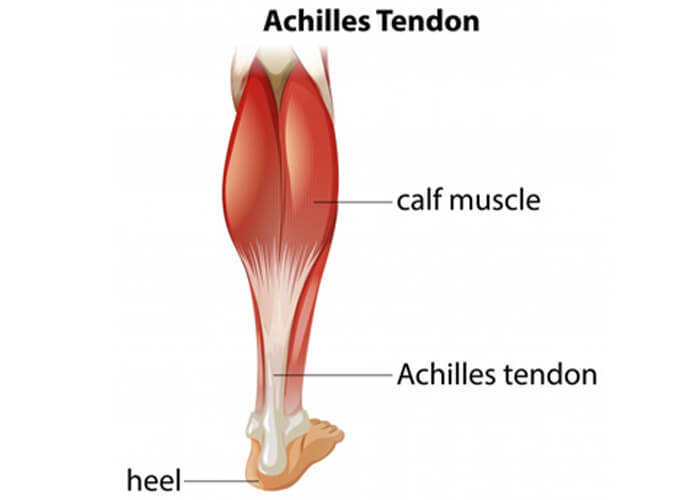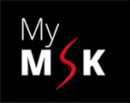
A strain or overuse of the Achilles tendon may cause injury, inflammation or rupture in the Achilles tendon. The recovery time for an Achilles tendon injury usually ranges from six weeks to six months. While most people recover within this timeframe, depending on the severity of the injury and the treatment, it can take more than a year for full recovery.
What Is the Achilles Tendon?

The Achilles tendon is sometimes also referred to as the calcaneal tendon. It is a tendon at the back of the lower leg which connects the heel to the lower leg. It is the largest and strongest tendon in the human body. On average, the Achilles tendon is 6 inches long and 5 millimetres in diameter.
The Achilles tendon is capable of being loaded with forces of up to 1000 pounds or more, hence the reason for it being described as the strongest tendon in the body.
It is composed of a band of tough fibrous tissue behind the lower leg which connects the calf muscles to the heel bone. It plays a crucial role in plantar flexion that lets you stand on tiptoes and helps you walk, run and jump.
Who Gets Achilles Tendon injuries?
Pain in the Achilles tendon is common with ageing and from normal wear and tear.
Though Achilles tendon injury can occur in anyone, it usually affects athletes, who endure repetitive stress in this region when taking part in activities such as running, jumping, football, skiing and tennis.
The prolonged strain on the Achilles tendon weakens the tendon and makes it more susceptible to injury. Over time with continuous pressure and overload, the Achilles tendon can break down, a process called degeneration. Sometimes the tendon weakens to the point of rupture. In this situation all it takes is a low amount of force to completely rupture the tendon.
Achilles tendon rupture is also possible due to a sudden strong force or trauma during physical activity.
The tear or rupture in the Achilles tendon is generally of two types:
-
- Partial tear
- Complete tear
- In a partial tear, some of the tendon fibres remain connected, whilst in a complete tear, all the tendon fibres disconnect and hence the tendon ruptures.
Symptoms of Achilles Tendonitis
-
- Mild to moderate pain with or without swelling
-
- Weakness or stiffness at the back of the ankle
A more serious injury such as a partial or full rupture with a cracking or snapping sound can cause
-
- Severe pain in the heel and ankle
-
- Stabbing pain behind the ankle
-
- Swelling near the heel and ankle
-
- Inability to stand or walk
How long does it take to heal from an Achilles Tendon Injury?
In general, any injury or inflammation in the Achilles tendon takes a long time to heal with full recovery of strength. Healing tome can vary from six weeks to even over a year. This is the reason why it can be very a disruptive condition, especially to athletes.
The healing period varies with the type of injury in the Achilles tendon. Though different treatments are recommended based on the cause of the injury, analgesics and sometimes injections are recommended to reduce the pain.
The Alfredson protocol is a specialised exercise exercise program for people suffering from Achilles tendonitis or tendinopathy.

Achilles Paratenonitis
Achilles Paratenonitis is an inflammation or scarring in the paratenon, a loose sleeve like tissue surrounding the Achilles tendon. This condition occurs with overuse, and typically affects runners. Obesity and wearing unfit shoes can also contribute to Achilles Paratenonitis.
Symptoms include pain, swelling and stiffness in the Achilles tendon and can be further aggravated while running. Without treatment, it can permanently put a strain on running. It usually takes up to three months to recover fully. However, in severe cases it can take up to one year.
Achilles Tendinosis
Achilles tendinosis is the chronic degeneration of the Achilles tendon. The tendons slowly thicken and gradually ruptures with symptoms like swelling and pain. This is common with people over the age of 35-40 or long distance runners.
Discomfort climbing steps or walking can also be a symptom of Achilles tendinosis. Eccentric training, physiotherapy and stretching exercises are the best way to improve mobility and relieve pain with this condition. In some cases, if the symptoms do not improve in six months, surgery is recommended.
Achilles Tendonitis
Achilles tendonitis is an acute inflammation of the Achilles tendon due to repetitive stress. It may also occur due to Haglund’s deformity, a condition in which the heel bone enlarges and cause inflammation by rubbing on the Achilles Tendon.
Severe pain on the back of the heel, swelling and thickening of the tendon are some of the symptoms.
There are two types of Achilles tendonitis depending upon the location of the inflammation.
-
- Insertional Achilles Tendonitis: It is the acute inflammation of the tendon exactly at the point where it inserts into the heel bone.
-
- Non-insertional Achilles Tendonitis: It is the acute inflammation in the middle portion of the tendon.
Resting, cold compression, physical therapy exercises, and casting help relieve pain and other symptoms. In most cases, it usually takes three to four months for the symptoms to subside. If the symptoms do not improve, surgery is the last resort.
Retrocalcaneal Bursitis
Retrocalcaneal bursitis is a condition in which the bursae, the fluid-filled sac present in the space between the heel bone and the Achilles tendon, become inflamed and thickened due to repetitive stress. It is common in athletes. Symptoms include pain, swelling, redness, stiffness and discomfort while walking or running.
The symptoms mostly subside within two to three months by resting, cold compression and using shoe inserts. On rare occasions, surgery is helpful.
Final Thoughts
As injuries in the Achilles tendon occur mostly from overuse and strain, you can prevent repetitive activities that cause this by taking regular breaks. Also, make sure to warm up properly and wear supportive shoes while training.
FAQ’s
Why does an Achilles tendon injury take a long time to heal?
An injured Achilles tendon takes a long time to heal because of a poor blood supply. Blood carries the nutrients necessary for optimal healing. Less blood flow means a longer healing time. Blood flow decreases further with age, making recovery even slower as we Age.
How do I recover from Achilles Tendon Injury without surgery?
Most mild injuries can heal themselves with enough rest and home treatments. Do exercises that relax and strengthen the Achilles tendon. The most important thing is to avoid doing exercises or activities that add strain to the tendon.
What happens if you don’t treat a damaged Achilles Tendon?
If you don’t treat a ruptured Achilles tendon, the injury may heal with scar tissue formation. This can affect the strength and elasticity of the tendon. In clinic we often notice patients are sometimes left with a thickened and shortened tendon on the affected side which affects every day walking or exercise such as running. We advise an injured Achilles Tendon should examined and scanned with an ultrasound imaging at the very least to assess the extent of injury.
When is Achilles Tendon Surgery Needed?
Usually in the case of a complete rupture, immediate surgery is advised. Occasionally You may also need surgery if you have a partial rupture or extensive tendinopathy, which is the degeneration of the tissue collagen that forms the tendon.
Are injections effective in treating Achilles tendon pain?
Yes, injections are an effective way to relieve Achilles tendon pain faster. Cortisone injections, Prolotherapy injections and Platelet-rich plasma injections are some of the injections used to treat pain. Achilles Tendon Hydrodissection is another effective procedure to treat Achilles tendon pain.
